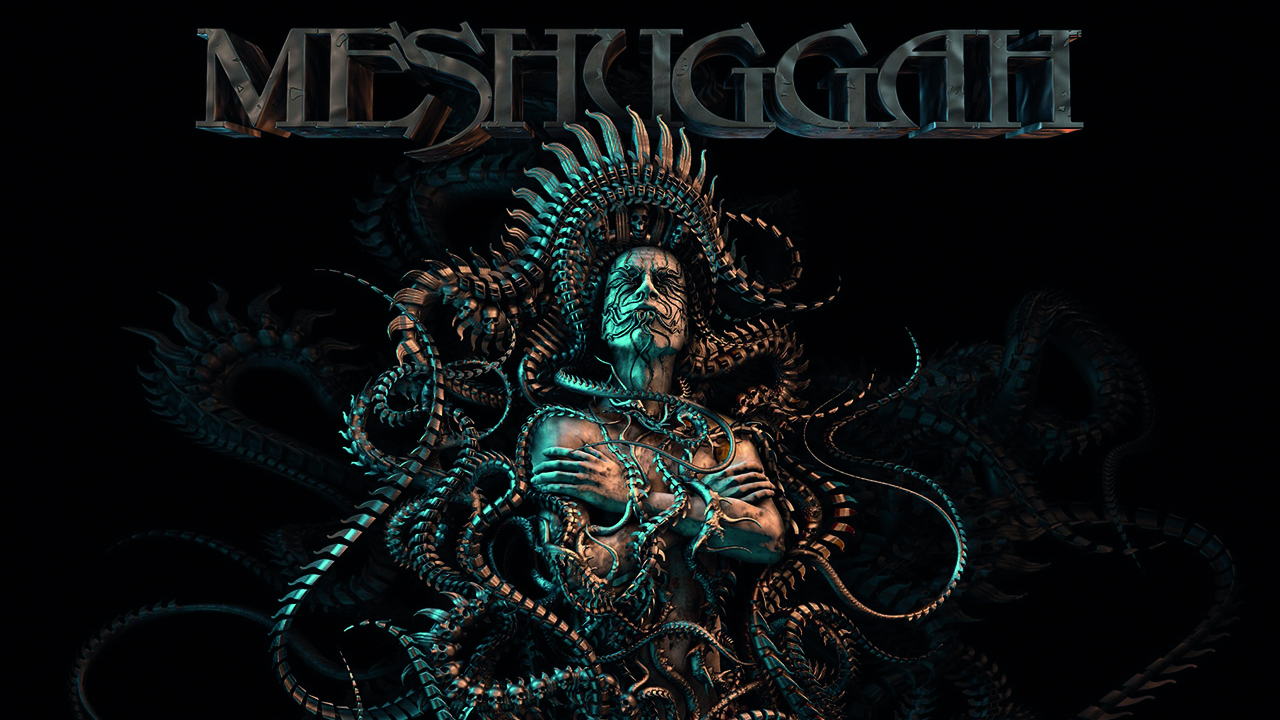So here we are again, graced with another opportunity to witness Meshuggah in action and then be compelled to say, ‘Yeah, but how the fuck do they keep doing this?’. One of metal’s few consistent miracles, the Swedish quintet have been such an unwavering force of originality and progressive thinking over the last three decades that they could have reached a point where simply delivering another batch of Meshuggah-like songs would do the job.
They are, after all, light years ahead of virtually everyone else; in stark contrast to their accidental djent offspring, this band know that riffs without revolution are just grist for the conformist mill. What continues to be genuinely startling about Meshuggah is how their meticulous devotion to moving forward has enabled them to keep their distance from any aspiring contemporaries and seem, like precious few other modern bands, entirely separate from the sonic status quo. The Violent Sleep Of Reason is that ethos of artistry and invention writ large over some of the heaviest and most hypnotic music of the band’s career.
The first thing you will notice about Meshuggah’s eighth full-length is how organic and, more importantly, disgustingly heavy it sounds. Eschewing the more digitally focused, robotic perfection of their last few records in favour of living, breathing ensemble performances blasted through real amplifiers and speakers, they instantly sound more terrifying than ever before.
Clockworks is a typically authoritative opening statement of intent, commencing with the mother of all incomprehensible polyrhythms before morphing and mutating across seven minutes of joyously pulverising riff worship, with Jens Kidman spitting his obtuse diatribes with more presence and clarity than even he has mustered in the past. On the deceptively catchy Monstro City, Kidman again provides the glue to hold his bandmates’ monolithic perversity together; at one point, as he bellows ‘Welcome, to Monstro City!’ it almost feels like a chorus, until the next irresistible yet implausible riff comes bludgeoning through the melee. More so than on anything they’ve released since Chaosphere in 1998, Meshuggah sound hellbent on crushing anything and everything that steps in their path. By The Ton is easily twice as heavy as its title intimates, with a lurching, serpentine groove that never quite lands where you expect while remaining insistent, mesmerising and impossible to dance to. The rawness and rasping density of Fredrik Thordendal and Mårten Hagström’s wall of guitars is used like a weapon of math destruction throughout, most notably on the loping attack of Ivory Tower, wherein Meshuggah out-sludge the Louisiana scene while still sounding like marauding cyborgs from some bleak dystopian hell. In truth there isn’t a single moment here that doesn’t sound like an unstoppable, alien force restating its supremacy. Their heaviest, smartest and possibly even best album yet, The Violent Sleep Of Reason is metal striding towards the brink of infinity. We are still not worthy, but by Christ, it feels good to cower in Meshuggah’s suffocating shadow.
TOMAS HAAKE (DRUMS)
WHAT’S THE MEANING BEHIND THE NEW ALBUM TITLE?
“It’s basically that being asleep, not acting/reacting to what’s going on in the world – the atrocities of armed conflict, humanitarian catastrophes that are carried out either in the name of religious dogma and extreme interpretations of writings and ideals, or for other reasons like resources – have very violent implications and effects. The inspiration for the title comes from the Goya painting The Sleep Of Reason Produces Monsters.”
WHICH SONG ON THE ALBUM PROVED THE MOST DIFFICULT TO PLAY?
“For me it was Ivory Tower. This song might seem the easiest to play in the sense that it’s a heavy sludgy song and not necessarily a very ‘technical’ one. For me it’s just in a tempo and a style, with all kinds of fast, single-kick patterns that make it really tricky to play. It’s the only song on the album where we didn’t use a click track – we tried hours of takes with one I couldn’t get it to groove. So we decided to try without and that went better. You can still hear that there’s no click track as I tend to speed up a little throughout the song.”
HOW DO YOU FEEL ABOUT YOUR IMPENDING 30TH ANNIVERSARY?
“I haven’t gotten that far as to start thinking of that yet! Our 25th anniversary boxset ended up being two years late for release so the way I see it we ‘saved’ two years there – when we released it in July I immediately felt two years younger, haha! We can do the 30th anniversary some 35 years into our career the way I see it, so here’s to more anniversary delays!”

